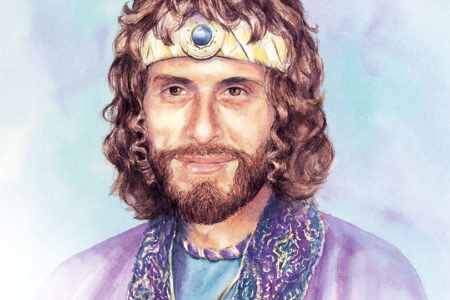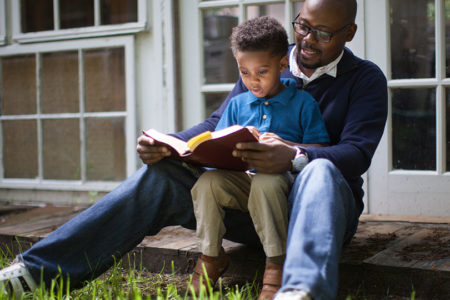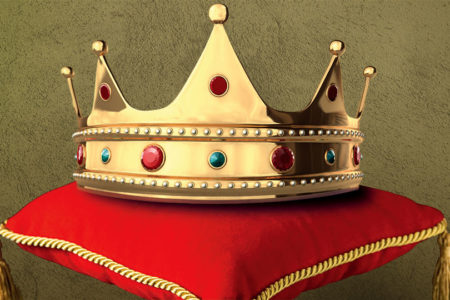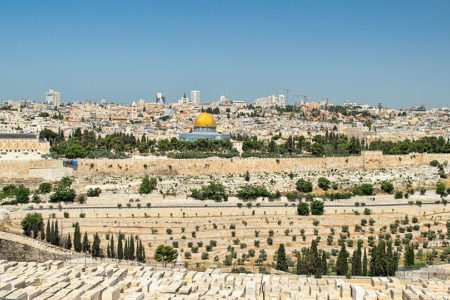Martyrs or Murderers? There is a Difference
When the self-proclaimed master-mind of the September 11, 2001, horror, Kalid Sheik Mohammad, appeared before a military court in Guantanamo Bay, Cuba, recently, he said he wanted the death sentence so he could die a martyr. “Yes,” he said, “this is what I wish. I have [been] looking to be a martyr from long time. I will, God willing, have this, by you. I understand very well.”
One of Mohammad’s fellow conspirators, Ramzi Binalshibh, echoed the desire. “I have been seeking martyrdom for five years. I tried for 9/11 to get a visa, and I could not. If this martyrdom happens today, I welcome it. God is great, God is great, God is great.”1
Mr. Mohammad has it wrong, as do all rabid Islamists who aspire to kill themselves and as many innocent victims as they can, thinking they will reap the glories of dying as shahids (martyrs). Actually, Kalid Mohammad and his ilk are not martyrs but murderers. A martyr is a victim; a murderer is a perpetrator. And there can be no uncertainty about Kalid Mohammad’s classification.
Perhaps it would do well for us to refresh our memories concerning that day of infamy seven years ago this month that sent more than 3,000 people—Americans, foreigners, and Muslims—to their deaths. We must never forget those who left their families and headed off to a day’s work, never to return.
Some people, of course, will plead for leniency for the men who conspired to bring down the World Trade Center and Pentagon and strike a major blow against America and the West. And doubtless there will be streets and institutions named for them, ceremonies honoring them, and inscriptions in Arabic textbooks extolling them as heroes in the radical reaches of Islamist circles. And, yes, Kalid Sheik Mohammad and his companions in crime will be dubbed martyrs by their own kind. But in the civilized world, call them what they are: murderers.
Collision of Cultures
It has been well documented that there is an identifiable clash of civilizations between the democracies and militant forces in Islam. The radical Islamist obsession is to create a global caliphate (Islamic empire) that will subjugate the Western democracies while obliterating the Jewish state. Columnist Charles Krauthammer clarified the issue four years ago:
Today there is no doubting the intentions of Arab-Islamic radicalism….The intention, endlessly repeated, is the establishment of a primitive, messianic caliphate—redeeming Islam and dominating the world.2
Dr. Ariel Cohen, in an article on the Heritage Foundation Web site, described the goals of global jihadists, particularly those of Hizb ut-Tahrir al-Islami (Islamic Party of Liberation), a secretive, radical organization now in 40 countries:
Its proclaimed goal is jihad against America and the overthrow of existing political regimes and their replacement with a Caliphate,…a theocratic dictatorship based on the Shari’a (religious Islamic law). The model…is the “righteous” Caliphate, a militaristic Islamic state that existed in the 7th and 8th centuries under Mohammad and his first four successors, known as “righteous Caliphs.” 3
Although the goals of international Islamist imperialism are not difficult to define, the Western media and political establishment, as well as the general populations, do not grasp them because they do not appear to present an existential threat to our existence. To many, the clash of civilizations is a benign social phenomenon, more about cultural and religious customs imported by immigrants than anything affecting real-life situations or national security.
However, there is a chillingly disturbing quality about this combative front that we can only ignore or wish away at our own peril. And the declarations of Kalid Sheik Mohammad and other 9/11 terrorists who seek “martyrdom,” especially when cast against the backdrop of the disintegrating plunge of the World Trade Center, make it personal and imperative.
The words of the late humorist and Pulitzer Prize-winning columnist Art Buchwald still ring in my ears. The man who found humor in everything found nothing to laugh about on the streets of New York City that September morning. “For the first time in my life,” he remembered, “I realized that these people were out to kill me.” Death at a distance can be impersonal; but in your face, it becomes personal indeed.
Culture of Death
Where does one draw the line when it comes to separating Western democracies, constructed on Judeo-Christian concepts, and the world of militant, imperialistic Islam? The basic demarcation is a love of life as opposed to a love of death.
A striking clarification appeared in an article written by a man named Spengler and titled “Why Israel is the world’s happiest country”:
Envy surrounds no country on Earth like the state of Israel, and with good reason: by objective measures, Israel is the happiest nation on Earth at the 60th anniversary of its founding. It is one of the wealthiest, freest and best educated….But most remarkable is that Israelis appear to love life and hate death more than any other nation.4
Spengler further noted that even though Israel is surrounded by Islamic forces willing to instigate suicidal attacks to destroy it, Israelis seem to love life more than any other people. Muslims are the opposite.
“As much as you love life, we love death,” Muslim clerics teach; the same formula is found in a Palestinian textbook for second graders….Arabs did not invent suicide attacks, but they have produced a population pool willing to die in order to inflict damage greater than any in history. One cannot help but conclude that Muslim clerics do not exaggerate when they express contempt for life.5
Justus Reid Wiener and Michael Sussman extensively analyzed the problem of inculcated shahid indoctrination of Palestinian children:
The idea of the shahid (martyr) has become so ingrained in Palestinian culture that it is a major theme in formal education, family values, religious practices, television broadcasting, posters, pre-suicide eulogies, trading cards, family celebrations, movies, music, games, and summer camps.6
The culture-of-death syndrome is not simply a matter for intellectual investigation, to be read and shelved as an exercise for academicians; it is a manifested fact of life that can no longer be ignored. The list of examples is virtually endless. From the 1983 Marine barracks bombing in Beirut, Lebanon, to the streets of Israel; Iraq; Afghanistan; Pakistan; India; Spain; Britain; Chechnya; and regions beyond, the obsession with inflicting death at the expense of one’s own life is endemic in radical Islam.
The Gulf Between Death and Life
Spengler rightly observed,
It’s easy for the Jews to talk about delighting in life. They are quite sure that they are eternal, while other peoples tremble at the prospect [of] impending extinction. It is not their individual lives that the Jews find so pleasant, but rather the notion of a covenantal life that proceeds uninterrupted through the generations.7
And even though many Jewish people may not know the intimate details of the biblical mandates regarding their nation’s destiny, they have an inherent sense of continuity as a people. How else can one explain their urge to return to the ancient land of their ancestors against the advice of most international “friends” and all reasonable odds of survival?
The entire idea of divine association, intervention, and guidance has its roots in the Book, its Author, and its information—in other words, in religion. The Bible is a letter of life and expectations.
A few months ago I listened to TV news personalities discuss terrorism and its causes. One statement arrested my attention. The host said, rather emphatically, “Don’t bring religion into this discussion.” However, there can be no viable examination of the Islamist terror crusade against Israel and the West without bringing religion into the discussion.
Muslim clerics consistently extol the rationale for suicide attacks and the glories of becoming a shahid. They in fact are at the basis of the appeal to kill oneself and the unsuspecting, in the name of religion, to win the spoils of martyrdom in Paradise.
Unlike what we are led to believe, the root causes for jihadist militancy are not fostered by poverty and exasperation with deprivation or by the feeling of being kept down by “occupiers” and “aggressors.” These symptoms could be alleviated by giving leaders an infusion of desire to improve the lot of their people.
The primary aggravating factor is a religious premise that demands conquest and the liquidation or subjugation of all who are regarded as infidels—thus the drive to establish a global Islamic caliphate ruled by a messiah-like potentate.
Unfortunately, most Western politicians and diplomats fail to consider the depth of commitment to radical Islam that drives terrorists to kill and conquer. Such a gross lack of understanding encourages superficial attempts at solutions or appeasement that cannot possibly extract the hostility instilled through carefully cultivated hatred. Such incitement-breeding hatred confuses murder with martyrdom in the name of religion.
Furthermore, a huge problem for the Western democracies is the inclination to eradicate God from public life and diplomatic discussion. If society considers God unworthy of even an acknowledgement of His existence and views believers as the disruptive elements of a secular world, there is a grave danger that we will forfeit the sanctity of human life and descend to the level of animals and crawling species. Witness the escalating abortion rates, the murders for pleasure or profit, and the hue and cry in some circles to sanction euthanasia to rid society of the burden of the elderly. In this scenario, commitment to God and country is passé, and freedom becomes “every man for himself.”
On the other hand, those who would destroy both us and our way of life do not think in such terms. They think religion, preach religion, and enforce religion as a consuming fact of their existence. For them, religion is a reason to win at any cost, even if that means deliberately confusing murder with martyrdom.
Consequently, we find ourselves in a struggle not of our own making—but a struggle nonetheless. It is a monumental conflict of cultures: a culture of life and its sanctity versus a culture of death to achieve supremacy. Unfortunately, it is a conflict we cannot talk our way out of.
Murder must be defined as what it is—in whatever guise it presents itself. And the need to understand the ramifications of the struggle between the entrepreneurs of death and the lovers of both life and the God who blessed us with it is profound; and it will determine the future.
ENDNOTES
- Josh White, “9/11 Architect Tells Court He Hopes for Martyrdom,” June 6, 2008 <washingtonpost.com/wp-dyn/content/article/2008/06/05/AR2008060500305.html>.
- Charles Krauthammer, “Spain is just Spain,” March 19, 2004 <townhall.com/columnists/CharlesKrauthammer/2004/03/19 /spain_is_just_spain>.
- Ariel Cohen, “Hizb ut-Tahrir: An Emerging Threat to U.S. Interests in Central Asia,” May 30, 2003 <heritage.org/Research/RussiaandEurasia/BG1656.cfm>.
- Spengler, “Why Israel is the world’s happiest country,” The Asian Times, May 13, 2008 <atimes.com/atimes/Middle_East/JE13Ak01.html>.
- Ibid.
- Justus Reid Weiner and Michael Sussman, “Will the Next Generation of Palestinians Make Peace With Israel?” Jerusalem Center for Public Affairs, December 1, 2005 <jcpa.org/jl/vp537.htm>.
- Spengler.







